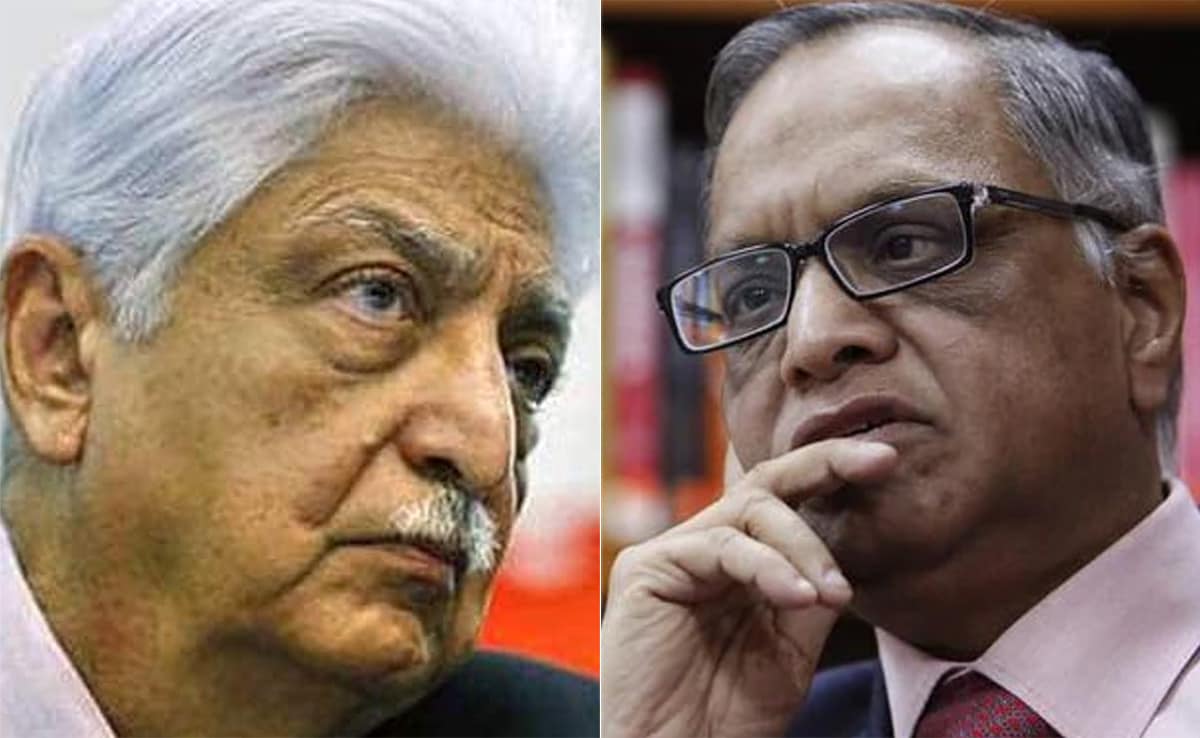
New Delhi:
Infosys founder NR Narayana Murthy once applied for a job at Wipro but was turned down, leading to the birth of Infosys, one of Wipro’s biggest competitors in the IT industry, the billionaire businessman told CNBC-TV18 in interview on Saturday. Former Wipro chairman Azim Premji later told Mr Murthy the decision to not hire him was a mistake, he revealed.
“Azim once told me that one of the biggest mistakes he committed was not to hire me,” the 77-year-old said, adding that if he had been hired by Wipro, things would have turned out differently for both him and Mr Premji’s company.
In 1981, Mr Murthy founded Infosys with his six friends and Rs 10,000 seed money provided by his wife and author Sudha Murty.
While Mr Murthy started from scratch, Mr Premji turned his inherited vegetable oil empire into an IT software solutions provider firm.
As of January 12, 2024, Infosys is valued at ₹6.65 lakh crore and Wipro stands at ₹2.43 lakh crore.
Road to Infosys
Mr Murthy’s journey to becoming a tech entrepreneur began with a job as a research associate at IIM Ahmedabad. Later, he worked as a chief systems programmer and along with a colleague, developed India’s first BASIC interpreter for TDC 312, a computer manufactured in the late 1960s by Electronics Corporation of India Limited.
He then started his own IT venture, Softronics, which subsequently failed, before Infosys was born.
Family and business
Mr Murthy’s views of involving family with business widely differ from Mr Premji. While Rishad Premji took over Wipro after his father stepped down in 2019, Mr Murthy claims his son Rohan would “never” ask to be part of Infosys.
“I think he’s even stricter than I am in these ideas; he will never say that,” he told CNBC-TV18.
Decades ago, he had a similar response to his wife Sudha Murty’s wish to join Infosys. Mr Murthy said he didn’t support her becoming a part of Infosys, a decision he recently admitted he later came to regret.
Mr Murthy said his wife, who is also an engineer, was “more qualified than all seven of us” and he was being “wrongly idealistic” when he did not support her wish to be a part of the Infosys team.




